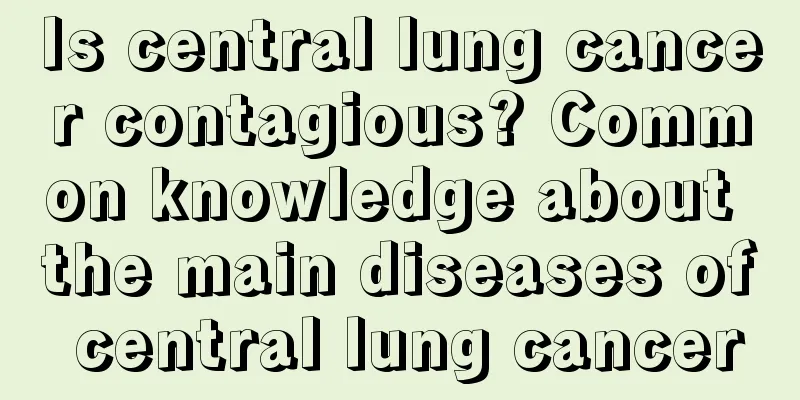Dietary considerations for patients with esophageal cancer after surgery

|
Esophageal cancer is a malignant tumor that can cause great inconvenience to the patient's diet. Because the lesion is in the esophagus and an incision must be made in the esophagus during surgery, the patient will not be able to eat normally for a long time after surgery. At this time, it is necessary to understand how to provide dietary care and related precautions for postoperative esophageal cancer patients. The wound recovery period for patients undergoing esophageal cancer surgery is about one month. Dietary conditioning during this period is crucial. A good diet can help patients recover better. At this time, the principle of gradual progress and small meals should be adhered to to promote the recovery of patients' digestive function. Irritating foods and condiments should be avoided, and the food temperature should be appropriate, and it should be soft rather than hard. The patient's diet should be arranged according to the postoperative recovery pattern, that is, intestinal motility should be restored 3 to 4 days after surgery. If a gastric tube or feeding tube is left in, nutrient solution can be fed through nasogastric tube. At the same time, the patient should be encouraged to get out of bed and do simple activities; on the 5th day, a residue-free liquid diet, mainly water, can be eaten; on the 6th day, a liquid diet, mainly rice juice, can be eaten; on the 7th day, fish soup, meat soup, or porridge can be eaten; after 2 weeks, thin and mushy meals can be eaten; after 3 weeks, ordinary meals can be eaten, such as rice, steamed buns, and easily digestible vegetables and meat. After esophageal cancer surgery, patients should mainly eat foods containing protein, fat, vitamins, carbohydrates, amino acids and other nutrients needed by the human body, as well as foods that can increase the body's immunity, which can speed up the patient's recovery; and avoid eating irritating foods and foods that are too salty, too sweet, too cold, or too hot. |
<<: 3 issues that lung cancer patients should consider during chemotherapy
>>: How to avoid damage to skin integrity in laryngeal cancer patients
Recommend
How to prevent anal fistula
Anal fistula is a common anal disease. If you suf...
How effective is laser for removing fat stretch marks
The obesity problem is becoming more and more ser...
Is it good to drink yogurt on an empty stomach?
Maybe many of us still have doubts about whether ...
How to choose wallpaper
There are many styles of wallpaper, such as pasto...
What are the benefits of adding vinegar to foot washing
Foot soaking is something we often do in our dail...
Why do I sweat while drinking water and eating?
For people with poor physical fitness, due to the...
Why is my back numb and tight?
If your back is always numb and tight, you should...
We must do a good job in preventing pancreatic cancer
The death of Jobs has made many people realize th...
How to quickly reduce swelling from ear piercing
Are you envious when you see other girls wearing ...
What are the folk remedies for treating herpes simplex
Herpes simplex virus is a particularly serious sk...
How to wear contact lenses
Wearing contact lenses can help us correct our vi...
Can you still eat hatched pigeon eggs?
Many people wonder whether hatched pigeon eggs ca...
How much does it cost to treat colorectal cancer
Colorectal cancer is a type of oncology with a re...
Can I wash my hair frequently if I have ringworm?
Tinea capitis is not serious, but it is not too m...
What are the functions and effects of b2
There are many vitamins in the human body, and th...









